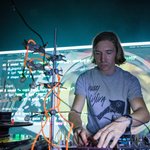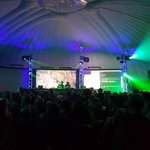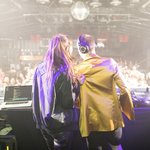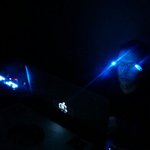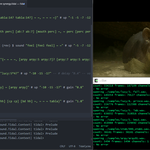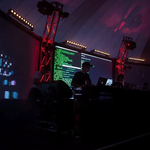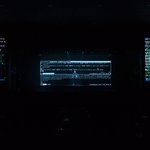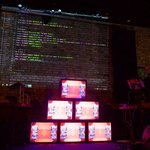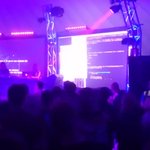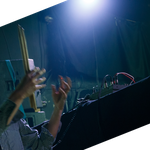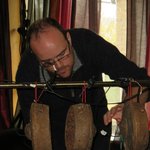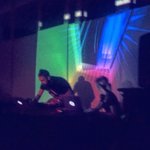
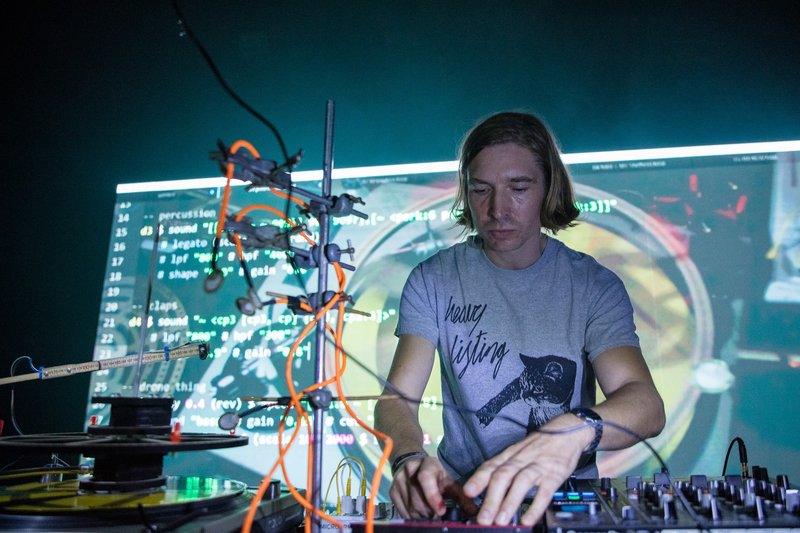
Graham Dunning's live work explores sound as texture, timbre and something tactile, drawing on bedroom production, tinkering and recycling found objects. He also creates visual work, video and installations drawing on these themes.
Much of the work evolves through experimentation with different processes: considering the methods by which sounds become music; process as a continuum encompassing both improvisational and procedural methods; and testing analogous processes across different media.
Piece by piece, Dunning crafts a machine made out of records, modified tone arms, dangled contact mics, acoustic percussion, pedal FX and other objects, using the rotary motion of the turntable to bring the construction to life.
Inherently wonky, clumsy and prone to unpredictability, the process is also completely transparent. Physical adjustments lead to real time changes in sound, a live dub to release the ghost in the machine.
"The scene at an algorave is often what you'd expect from any good techno night - a dark room, engaging visuals. a decent, bass-heavy speaker set-up, and lots of people ready to dance. .. performers at algoraves respond to each other and the audience in real time, often projecting the lines of code onto the walls as they type. lt’s coding as improvisation and experiment.." - The Wire magazine
Algorave is a combination of "algorithms" and "rave", the opportunity to dance to alien rhythms and freaky visuals, all created from code before your eyes. The Algorave scene is fast-growing around the world, with Sheffield a strong centre, building on its fine roots in electronic music history. For the AlgoMech Algorave we are teaming up with Millennium Gallery Live Lates, and mixing in some mechanical techno to spice up the algorithmic electronics. We'll be bringing together algorithmic and mechanical artists from UIQ, PC Music, Computer Club, Rephlex, Conditional and NTS radio on one bill.. This has to be experienced!
